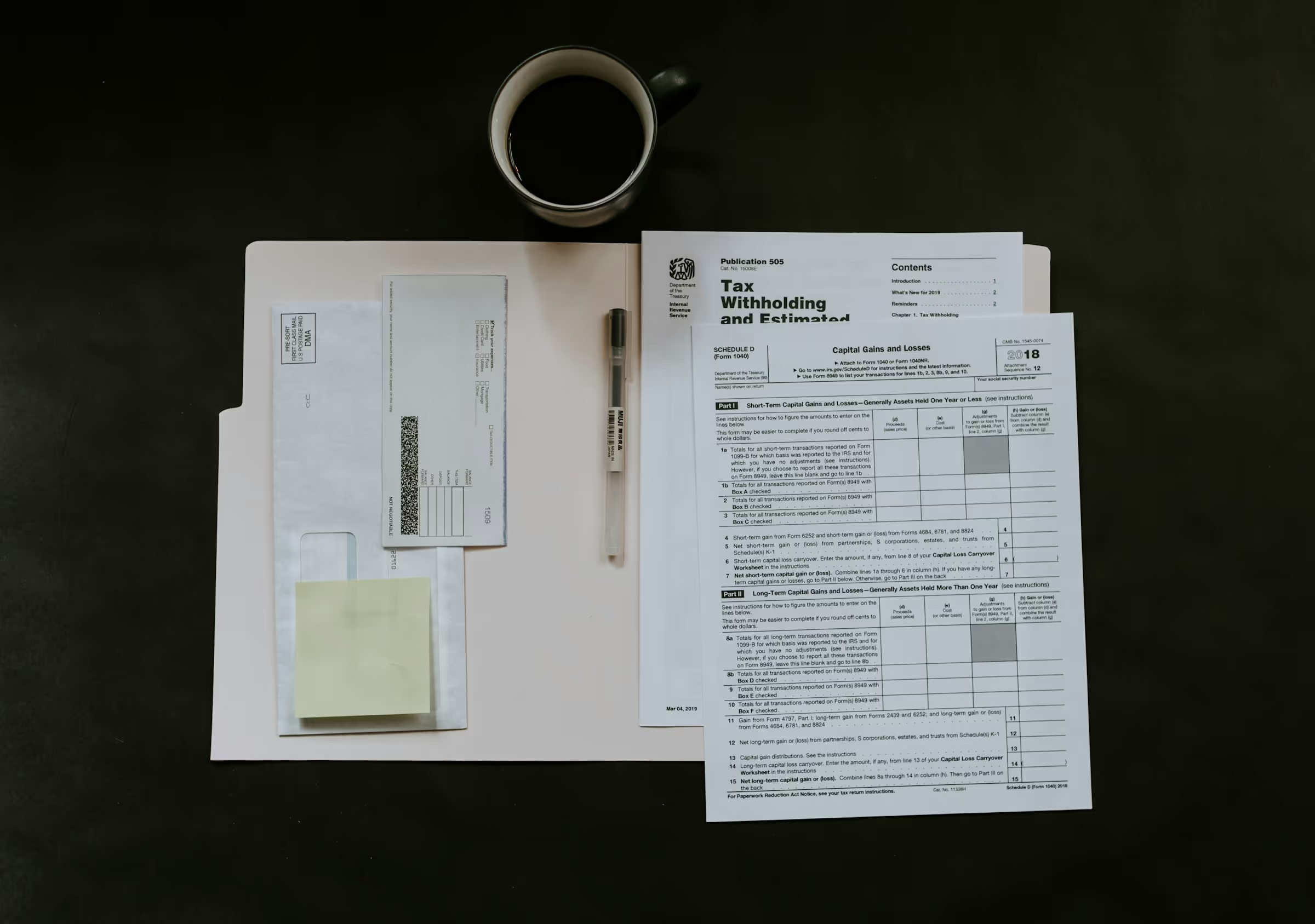Taxes are a certainty in every business, yet managing them well is far from simple. Whether you're a small business owner, startup founder, or managing corporate finances, the choice between hiring a tax strategist vs tax accountant can dramatically impact your financial outcomes.
Many businesses ask, “Do I need a tax strategist or accountant?” While both professionals deal with taxes, their roles, objectives, and value propositions differ. Some companies benefit from long-term planning, while others need accurate compliance and timely filings. In this guide, we’ll explore each role, explain the difference between a tax strategist vs tax accountant, compare costs, and help you decide which expert best suits your needs.
We’ll also highlight when to consider hiring each, and how both can complement services like bookkeeping and tax accounting.
What is a Tax Strategist?
A tax strategist is a financial professional who focuses on minimising your long-term tax burden. Unlike accountants who focus on past records and compliance, tax strategists proactively design a financial plan to reduce taxes in the future. Their goal isn’t just to file your taxes correctly, it’s to ensure you’re paying the least amount legally possible.
So, what does a tax strategist do? They look at the big picture. They consider your income sources, investments, retirement plans, business structure, and even estate planning. Their recommendations may span across years and involve multiple adjustments to how you report and earn income.
In practice, a tax strategist works as a consultant who bridges the gap between your current tax practices and your future financial aspirations. They don’t merely optimise individual tax returns, they develop systems tailored to your specific goals. For example, a strategist may recommend forming a holding company, adjusting payroll to take advantage of pre-tax benefits, or spreading out gains through income timing strategies. These techniques are especially valuable for entrepreneurs, high-net-worth individuals, and investors with fluctuating incomes.
Moreover, tax strategists often collaborate with legal advisors, wealth managers, and bookkeeping teams to ensure every piece of your financial puzzle aligns with your tax strategy. Their work doesn’t stop at planning, it includes stress-testing your financial structure for resilience under different regulatory or economic conditions. By staying ahead of tax code changes, they can pivot strategies in real time, ensuring that you remain compliant while maximising savings. This proactive, multidimensional approach is what makes a tax strategist an essential asset for any business looking beyond simple compliance.
What Does a Tax Strategist Do?
Common responsibilities include:
- Reviewing your financial structure for inefficiencies;
Developing strategies to legally lower your taxable income; - Advising on business entity selection (e.g., LLC vs S-corp);
- Coordinating with legal and investment advisors for tax alignment;
- Planning ahead for major events like a business sale or expansion.
A good strategist doesn't just find deductions, they build a system that works for your business goals. So when asking, “What does a tax strategist do?”, the answer is clear: they engineer your finances for optimal tax outcomes.
In addition to tax planning, strategists often perform risk assessments related to IRS scrutiny or legislative changes. They monitor tax law developments and adjust your strategy to align with the latest compliance requirements while still maximising savings. For example, they may recommend changing how profits are distributed, how depreciation is recorded, or how retirement contributions are structured.
Another important aspect of what a tax strategist does is coordinating with your internal finance or bookkeeping team to ensure consistent implementation. They don't just make recommendations, they ensure execution through periodic reviews, recalibrations, and direct collaboration with your accountant or CFO. Their work is ongoing and iterative, often delivering measurable ROI year after year.
When to Hire a Tax Strategist
Understanding when to hire a tax strategist can have a dramatic impact on your long-term financial success. Unlike tax accountants, who typically engage with your business during or after a reporting period, tax strategists work proactively. Their strength lies in planning ahead, adjusting your business structure, income timing, and investment strategies before decisions are finalised. Waiting too long to consult a strategist may limit your options or result in missed opportunities.
Here are clear signs that it’s time to consider hiring a tax strategist:
- You're consistently paying high taxes and want to reduce them;
- You're preparing to sell your business or assets;
- You're changing entity structures or expanding operations;
- Your revenue has grown quickly and your current plan feels outdated;
- You already have a tax accountant but need a higher-level strategy.
Each of these scenarios reflects a point in your business lifecycle where strategic tax planning can either save or cost you thousands. A strategist can help you design a forward-looking plan that aligns with your company’s financial goals and adapts as tax laws evolve.
Crucially, when to hire a tax strategist is not when tax season arrives, it’s well before that. Strategists work best when they have the time to evaluate your full financial picture, build projections, and make changes that influence your next filing. So, if you involve them quickly enough, you will unlock the value of their advisory capabilities fully. You can also avoid any last-minute decisions that could limit tax efficiency of yours.
Key Differences Between a Tax Strategist and Accountant
While both professionals help manage tax-related matters, the difference between tax strategist and tax accountant lies in their approach, focus, and overall purpose. One is forward-thinking and strategic; the other is detail-oriented and compliance-focused. Understanding their unique strengths will help you align the right expert with your business goals.
Comparison Table: Tax Accountant vs Tax Strategist
This table makes it clear: accountants are primarily concerned with what has already occurred, recording it accurately, reporting it properly, and ensuring compliance. They are indispensable during tax season or when the IRS comes knocking. Their value lies in accuracy, regulation awareness, and error-free documentation.
Tax strategists, however, are focused on engineering the future. They anticipate tax events, structure income in tax-efficient ways, and guide big decisions like business expansions or exits. The difference between tax strategist and tax accountant becomes most visible when you're planning beyond a single fiscal year. Strategists shape your financial roadmap, while accountants ensure the reporting follows that path correctly and legally.
Both roles are important. The real power lies in knowing when to use each, or when to use both together for a fully integrated approach.
Cost Comparison: Tax Strategist vs. Tax Accountant
Understanding the cost of tax strategist vs accountant is essential for budgeting your financial services correctly. The costs vary widely depending on location, complexity, and level of engagement.
Tax Accountant Costs
- Simple business tax return: $300–$600
- Complex business or multi-state returns: $800–$2,000
- Hourly rate: $75–$250/hour
Tax accountants generally charge per return or hourly for ongoing services. Their fees are often more predictable and suitable for small businesses or sole proprietors.
Tax Strategist Costs
- Initial tax strategy review: $500–$2,000+
- Ongoing advisory plans: $1,500–$10,000/year
- Hourly rate: $200–$500/hour
Tax strategists are more expensive due to the customised nature of their work. They typically work on a retainer or project basis, especially if ongoing planning is needed.
When considering the cost of tax strategist vs accountant, it’s important to evaluate ROI. While strategists may cost more upfront, they often uncover tax savings that far exceed their fees. Accountants, while more affordable, primarily focus on correct filings rather than savings opportunities.
Do I Need a Tax Strategist or Accountant?
This is the core question many business owners face: Do I need a tax strategist or accountant?
You May Need a Tax Accountant If:
- Your business structure is simple (sole prop, LLC);
Your focus is on annual tax filing and basic compliance; - You don’t engage in complex transactions or asset sales.
You May Need a Tax Strategist If:
- You want to reduce your tax burden year-over-year;
- You’re planning a business exit, merger, or acquisition;
- Your income or investments are growing rapidly.
In many cases, both roles complement each other. A strategist may design your tax plan, while your accountant ensures it's properly filed and documented. Think of the strategist as the architect, and the accountant as the engineer who builds according to the blueprint.
If you're still unsure and wondering, “Do I need a tax strategist or accountant for my specific needs?”, consider starting with a consultation. Many financial service firms, including those offering tax accounting, can help assess your current setup and recommend the best support structure. The right professional combination often depends on how complex your finances are and how aggressive your tax planning goals may be.
Ultimately, the decision should align with your growth trajectory. A freelancer or sole proprietor may function well with just a tax accountant, while a scaling startup, real estate investor, or multi-entity corporation will likely benefit from a dedicated strategist. Matching your financial operations with the right expertise at the right time is a strategic move in itself.
Conclusion
Choosing between a tax strategist vs tax accountant doesn’t need to be difficult. Both roles serve unique but essential functions in your financial success. Understanding the difference between tax strategist and tax accountant helps you make a more informed, cost-effective decision.
If your priority is regulatory compliance and basic filing, a tax accountant is your go-to expert. But if you're looking to optimise your tax position and plan for future gains, a tax strategist provides the insight you need. In some situations, hiring both can offer the best of both worlds.
Now that you’ve learned what a tax strategist does, when to hire each, and the cost of tax strategist vs tax accountant, the decision becomes clearer. Assess your needs carefully, and don’t hesitate to consult a financial advisor who understands your business structure. Explore our expert insights at Bob’s Bookkeepers.





